The High Court of Singapore has refused to stay a crypto user’s class action despite having a Singapore International Arbitration Centre (SIAC) arbitration clause in its terms and conditions. The Court held that the defendants had established a prima facie case for an arbitration agreement, but that their conduct in the local proceedings amounted to an acceptance of the local court’s jurisdiction over the matter.
The Decision, dated November 30, can be read here.
The defendants are Terraforms Labs Pte Ltd, along with its co-founders (including the company’s CEO, Kwon Do-hyung, popularly known as Do Kwon, whose extradition was recently approved as we reported.) Terraform is a blockchain developer that created the TerraUSD stablecoin – designed to remain valued at US$1 per coin – and a sister coin known as Luna. The value of both coins crashed in May 2022, leading to a loss of approximately US$40 billion in the global cryptocurrency market.
In September 2022, the Spanish citizen Julian Moreno Beltrán, together with the Singaporean investor Douglas Gan, filed a lawsuit on their behalf and 375 others, alleging fraudulent misrepresentations by the defendants, which induced claimants to purchase TerraUSD crypto tokens and hold them while the currencies’ value plummeted. They contend to have been assured about the currencies’ value stability and guaranteed earnings (¶¶ 6-13 Decision.)
In an attempt to dismiss the lawsuit, the defendants challenged the jurisdiction of the court on the basis of an arbitration agreement said to have been entered into between Terraform and the claimants. The defendants argued that its website contained terms and conditions which included a clause providing for arbitration before a sole arbitrator at the SIAC.
The court’s assistant registrar dismissed the defendants’ initial application for a stay, holding that they had not proved the existence of a valid arbitration agreement. She found that the relevant hyperlink for the Terraform terms of use was “tucked away at the bottom of the website such that it lacked prominence,” that such hyperlink was shown with “relative obscurity”, and that arbitration clauses must be expressly brought to the other party’s attention (AR decision ¶¶ 22-24.) The defendants appealed the decision to the High Court.
Judge Hri Kumar Nair, on November 30, dismissed the appeal on the grounds that, even if the defendants had established a prima facie case of an arbitration agreement, their conduct of the matter up to that point demonstrated their acceptance to the court’s jurisdiction over the lawsuit.
The judge considered that Terraform had taken a “step in the proceedings” by filing a defense not only on jurisdiction issues but also on the merits of the suit, as well as a counterclaim. He also highlighted that the suit was served in September 2022 and that the defendants did not challenge the court’s jurisdiction until nine months after, which constituted a “regrettable” delay (Decision ¶ 184.)
Therefore, the defendants cannot escape now from this multi-million-dollar class action lawsuit before the Singaporean courts, but for future disputes, this ruling may be of use for them to argue for the existence and validity of an arbitration agreement. In this regard, Judge Hri Kumar Nair considered that the “pop-up” notice on the website asking users to click on terms of use, gave them “either actual or constructive notice” of the arbitration agreement (Decision, ¶ 161.)



